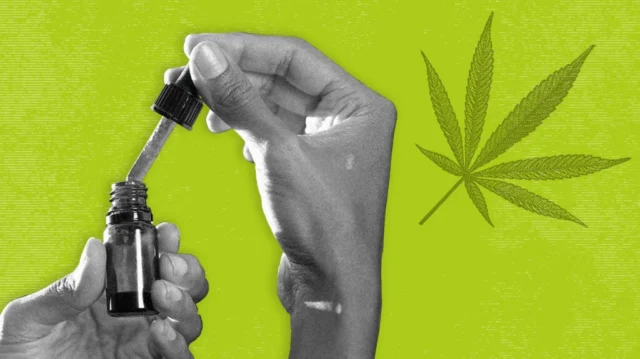
Cannabidiol (CBD) is a non-psychoactive component found in cannabis plants that has increased in popularity due to its potential health benefits. CBD interacts with the body’s endocannabinoid system, which regulates various processes, including immune function, sleep, and pain perception. While much more research needs to be done on the therapeutic effects of CBD, current studies have shown promise for conditions like anxiety and chronic pain.
This article will explore the science behind CBD and how it works in the body to produce its potential health benefits.
How Cannabidiol Works in the Body
Cannabidiol interacts with receptors throughout the body known as the endocannabinoid system (ECS). The ECS is a complex network of neurotransmitters, receptors, and enzymes that plays a vital role in regulating various processes in the body. CBD works by binding to certain types of receptors in the brain and throughout the body, known as CB1 and CB2 receptors. These receptors are involved in inflammation, sleep regulation, pain perception, mood regulation, and much more.
Furthermore, CBD has been found to interact with other neurotransmitter systems in the body, such as serotonin. Serotonin is a neurotransmitter responsible for regulating our mood and is believed to play an important role in anxiety and depression.

Health Benefits of CBD
One area where research into cannabidiol has shown promise is for conditions related to anxiety and depression. Studies have found that CBD can be useful for reducing anxiety symptoms, such as fearfulness and paranoia. It may also help reduce feelings of depression by increasing levels of serotonin and decreasing stress hormones.
CBD may also be beneficial for treating chronic pain due to its anti-inflammatory properties. Studies have found that it can help reduce inflammation and lessen pain associated with arthritis and multiple sclerosis.
CBD may also help treat certain types of seizures, as well as help to protect the brain from damage caused by stroke or traumatic injury. Additionally, some studies suggest that CBD could help improve cognitive function and even slow down the progression of Alzheimer’s disease.

How to Use CBD Effectively
It is essential to consult with a doctor before starting any new supplement regimen. CBD should also be used carefully due to the potential for side effects such as drowsiness, nausea, or changes in appetite.
The optimal dose of CBD will vary from person to person, as everyone is different. Start slowly and gradually increase your dose until you find the amount that works for you. Different forms of CBD may also require different doses, so it is vital to note how much you are taking and ensure you are taking the right amount.
CBD is available in a variety of forms, including capsules, oils, tinctures, edibles, and topical creams. The most popular form of CBD is an oil extract that can be taken orally or applied topically to the skin. It’s important to note that not all CBD products are created equal, so it’s essential to research the products you are considering buying.
Additionally, it would help if you always talked to your doctor before starting any new supplement or medication. On the whole, CBD products are generally regarded as safe and non-addictive.

The Safety and Legal Considerations Related to Taking CBD
While much more research needs to be done on CBD’s safety and therapeutic effects, current studies have found that it is generally safe for short-term use. However, it’s important to note that CBD can interact with certain medications and should be used with caution in those cases.
Additionally, some states have different laws regarding the sale and use of CBD, so it’s essential to research the laws before purchasing or using it. Furthermore, be sure to buy from a reputable online dispensary Canada to ensure that your CBD is of good quality and has been tested for contaminants. Finally, speaking with your doctor before starting any new supplement, including CBD, is essential.

Potential Side Effects of Using CBD
While using CBD for medical purposes is generally considered safe, there are some potential side effects that may occur. These include drowsiness, confusion, changes in appetite, and fatigue. Additionally, it’s important to note that CBD can interact with certain medications and should be used with caution in those cases.
If you’re worried about any symptoms you’re experiencing, consult with your doctor right away. Always begin new treatment plans under the guidance of your GP or other healthcare professional.

On the Whole
CBD has become increasingly popular in recent years due to its potential therapeutic effects and safety profile compared to other drugs. While more research needs to be done before definitive conclusions can be made on its efficacy, current studies suggest that it could help manage certain chronic conditions as well as help protect the brain from damage caused by stroke or traumatic injury.
Additionally, it is essential to consult with your doctor before starting any new supplement regimen and note potential side effects such as drowsiness, nausea, or changes in appetite. Overall, CBD is considered safe and offers numerous health benefits. With careful research and the correct dosage, finding a form of CBD that works for you is possible.









